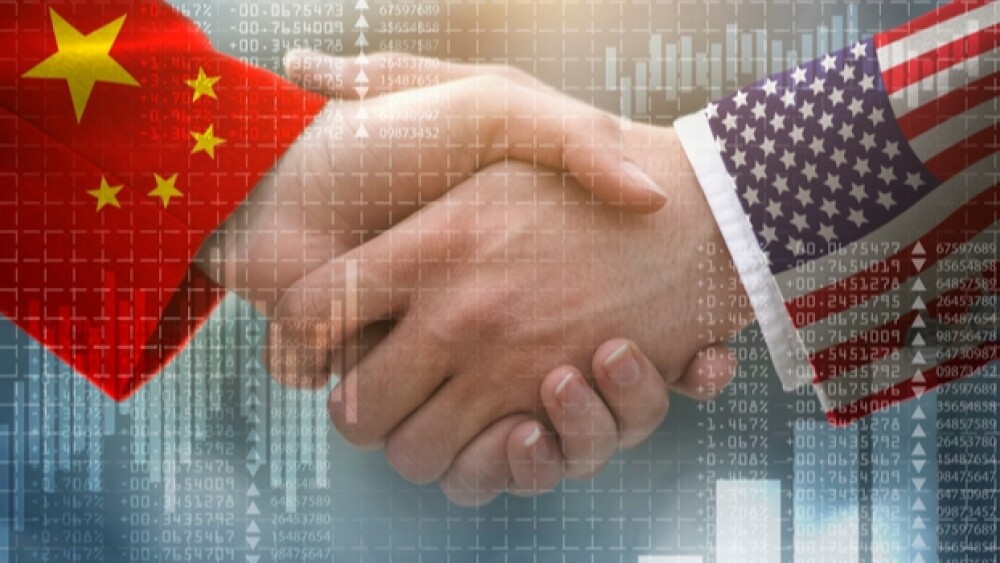U.S. and Chinese regulators are edging toward a cooperation plan on Chinese companies that have stock listed on U.S. stock exchanges.
U.S. and Chinese regulators are edging toward a cooperation plan on Chinese companies that have stock listed on U.S. stock exchanges. The New York Stock Exchange (NYSE) and Nasdaq have threatened Chinese companies with delisting if the Chinese government doesn’t make changes giving the U.S. Securities and Exchange Commission (SEC) access to audits. The process was initiated during the Trump administration and is continuing under President Joe Biden.
After the Enron Corp. accounting scandal, the U.S. enacted the 2002 Sarbanes-Oxley Act, which required all public companies to have their audits inspected by the U.S. Public Company Accounting Oversight Board. In the twenty years since China has refused access. During the Trump Administration, this became something of a flashpoint, probably long overdue.
For example, Luckin Coffee Inc., a Chinese chain, was listed on the Nasdaq. Then it was discovered the company had intentionally made up a significant amount of its 2019 revenue. In an unusual bipartisan move, Congress moved to force U.S.-listed companies based in China and Hong Kong to allow inspections.
Per the Holding Foreign Companies Accountable Act (HFCAA), the SEC began publishing its “provisional list” of companies that were not complying. Despite this coming as no surprise to investors, U.S. shares from China and Hong Kong-based companies plunged and it looked like the U.S. and China were unlikely to reach a deal.
China’s regulators stated that they were making “positive progress” in talks while simultaneously calling it “politicizing securities regulation.”
The criticism of Chinese companies is that they enjoy trading privileges in the U.S. market economy while receiving Chinese government support and operating “in an opaque system,” stated Bloomberg Wealth. In addition to audit access, the HFCAA requires foreign companies to disclose if they’re government-controlled. The SEC also requires investors to receive more information about shell companies, also known as variable interest entities (VIEs), that Chinese companies use to list stocks in New York. Since July 2021, the SEC has refused new stock listings from China and has indicated that more than 250 companies already trading will see similar requirements.
On its part, China says its national security laws prohibit the companies from turning over audit documents to U.S. regulators.
It’s not clear if any delisting is going to happen in 2022 or even in 2023. The HFCAA would only delist companies after noncompliance with audit inspections after three consecutive years. And the companies could come back by certifying they had hired a registered public accounting firm approved by the SEC.
Reportedly, China and the U.S. are moving slowly toward some agreement. China’s state media reported, “The Chinese government continues to support various kinds of business’s overseas listings.”
The delisting threat, along with a COVID-19 surge in China and the Russia-Ukraine war, has made China’s economy shaky. On Monday, JPMorgan China Internet analysts Alex Yao and a team said they considered the sector “uninvestable” for six to 12 months. As a result, they downgraded 28 stocks they covered.
Two big Chinese Internet companies, Alibaba and Tencent’s valuations plunged more than 40% over Beijing’s efforts to break up their monopolies. The Hang Seng index that tracks Chinese tech stocks dropped to a six-year low after the most recent SEC threats.
A portfolio manager at a large asset manager in the territory told The Financial Times, “Chinese regulators always felt the [U.S.-listed Chinese equities] market was mostly U.S. investors, but now they are noticing how much Hong Kong is bleeding as a result and they need to rethink the strategy.”
Although not an exhaustive list, examples of China-based biopharma companies listed in the U.S. include BeiGene, Legend Biotech, Zai Lab, Hutchison China Meditech, I-MAB, Burning Rock Biotech and others. Just because they trade in the U.S. does not mean they are likely to be delisted or are in noncompliance with SEC regulations.





